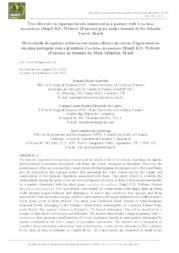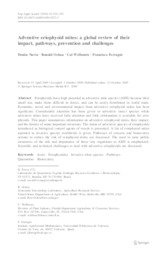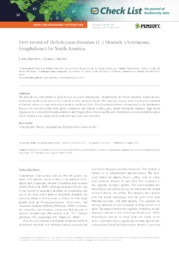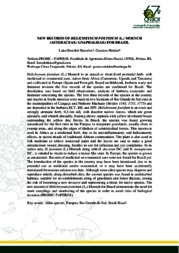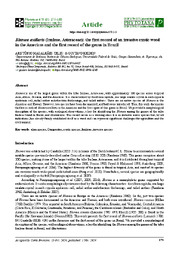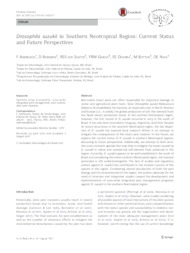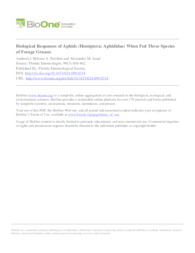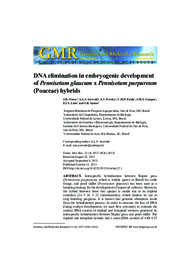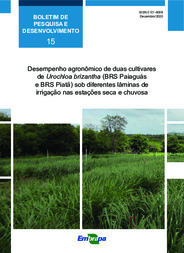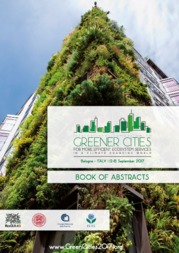Search Publications
Filter by:
| Author(s): SCERVINO, R. P.; CANTO, L. L. R. P. do; QUEIROGA, J. L. de Abstract: The riparian vegetation along water courses and the health of the river’s basin, regarding the aquatic and terrestrial ecosystems associated with them, are widely discussed in literature. Ho... ... |
| Author(s): FERREIRA, D. N. M.; OCHOA, R.; WELBOURN, C.; FERRAGUT, F.
|
| |
| |
| Author(s): TELES, A. M.; HEIDEN, G. Abstract: Blumea is one of the largest genus within the tribe Inuleae, Asteraceae, with approximately 100 species across tropical Asia, Africa, Oceania, and the Americas. It is characterized by discif... ... |
| Author(s): ANDREAZZA, F.; BERNARDI, D.; SANTOS, R. S. S. dos; GARCIA, F. R. M.; OLIVEIRA, E. E.; BOTTON, M.; NAVA, D. E. Non-native insect pests are often responsible for important damage to native and agricultural plant hosts. Since Drosophila suzukii Matsumura (Diptera: Drosophilidae) has become an important pest in N... ... |
| Author(s): PARCHEN, H. A.; AUAD, A. M. In Brazil, the forage species Brachiaria spp., Pennisetum purpureum (Schumacher), and Cynodon dactylon (L.) (Poaceae) are important components in the feed that is used to rear animals for meat and mil... ... |
| Author(s): NUNES, J. D.; AZEVEDO, A. L. S.; PEREIRA, A. V.; PAULA, C. M. P.; CAMPOS, J. M. S.; LEDO, F. J. da S.; SANTOS, V. B. Interspecific hybridization between Napier grass (Pennisetum purpureum), which is widely grown in Brazil for cattle forage, and pearl millet (Pennisetum glaucum) has been used as a breeding strategy f... ... |
| Author(s): POMPEU, R. C. F. F.; MARANHÃO, S. R.; SOUZA, H. A. de; CÂNDIDO, M. J. D.; GUEDES, F. L.; ROGERIO, M. C. P.; LOPES, M. N.; ARAÚJO, R. A. de; FONTINELE, R. G.
|
| Author(s): SILVA, S. A. C. G. da; SANTOS, A. G. dos; SILVA, S. S. L.; LOGES, V.; SOUZA, F. H. D. de The objective of this study was to characterize eight accessions of Brazilian native grasses, namely Axonopus parodii (AP 01), Paspalum notatum (PN 01, PN 02, PN 03, PN 04, PN 05 and PN 06) and P. lep... ... |
Observation
Some of Embrapa's publications are published as ePub files. To read them, use or download one of the following free software options to your computer or mobile device. Android: Google Play Books; IOS: iBooks; Windows and Linux: Calibre.
Access other publications
Access the Agricultural Research Database (BDPA) to consult Embrapa's full library collection and records.
Visit Embrapa Bookstore to purchase books and other publications sold by Embrapa.

